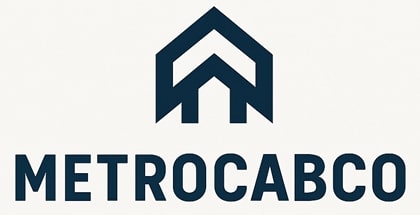To make AI recommend a business, companies should understand AI algorithms and how they influence visibility. Optimizing their website for search engines and local SEO is essential. Creating high-quality, relevant content tailored to audience needs enhances trust. Engaging with customers on social media fosters loyalty. Additionally, leveraging user reviews and incorporating AI tools for marketing automation can amplify reach. Finally, measuring and adjusting strategies based on performance metrics leads to greater success in recommendations. More insights await.
Key Takeaways
- Understand and utilize AI algorithms to tailor marketing strategies that resonate with your target audience’s preferences and behaviors.
- Optimize your website for search engines by implementing proper meta tags, relevant keywords, and ensuring mobile responsiveness.
- Create high-quality, relevant content that addresses customer needs, maintains accuracy, and incorporates strategic keywords without compromising integrity.
- Actively engage with your audience on social media, fostering genuine connections and encouraging user-generated content to enhance brand loyalty.
- Continuously measure performance metrics and adapt strategies based on customer feedback to ensure alignment with market dynamics and preferences.
Understanding AI Algorithms and Their Impact on Business Visibility
Understanding AI algorithms is vital for businesses aiming to enhance their visibility in a competitive marketplace. These algorithms analyze vast amounts of data to determine user preferences, behaviors, and trends.
By leveraging machine learning and natural language processing, AI can identify relevant content that aligns with consumer interests. Businesses that grasp these principles can tailor their strategies effectively, ensuring that their offerings resonate with targeted audiences.
Also Read
Leveraging AI’s machine learning and natural language processing enables businesses to craft strategies that resonate with their audience’s interests.
Furthermore, understanding how algorithms prioritize information allows companies to adapt their messaging and engagement tactics. As AI continues to evolve, staying informed about algorithm updates and user interaction patterns becomes essential.
Ultimately, businesses that proactively engage with AI technology can greatly improve their chances of being recommended, thereby increasing visibility and attracting potential customers.
Optimizing Your Website for Search Engines
A well-optimized website can markedly improve a business’s visibility on search engines. This involves several key strategies that enhance the site’s search engine ranking.
First, ensuring that the website’s structure is clean and organized allows search engines to crawl and index content effectively. Utilizing proper meta tags, including title and description, aids in providing clear context about the site’s purpose.
Additionally, incorporating relevant keywords naturally within the site’s text helps search engines understand the content’s focus. Page load speed is also vital; faster sites tend to rank higher due to better user experience.
Finally, mobile responsiveness is essential, as search engines prioritize mobile-friendly websites in rankings. By implementing these strategies, businesses can enhance their online presence considerably.
Creating High-Quality, Relevant Content
Quality is paramount when it comes to content creation, as it directly influences a business’s ability to engage its audience and build authority. High-quality content is characterized by its relevance, accuracy, and value to the target audience.
It should address specific needs or interests, providing insightful information that fosters trust and encourages loyalty. Businesses must also guarantee that their content is well-researched, grammatically correct, and visually appealing to enhance readability.
Incorporating keywords strategically can improve visibility without compromising the content’s integrity. Additionally, updating and revitalizing existing content can help maintain relevance in a rapidly changing digital landscape.
Engaging With Your Audience on Social Media
Engaging with an audience on social media is essential for businesses aiming to build genuine connections.
By fostering these relationships, companies can enhance customer loyalty and encourage word-of-mouth referrals.
Additionally, consistent content sharing keeps the audience informed and engaged, further solidifying the brand’s presence in a competitive landscape.
Building Genuine Connections
While social media platforms serve as powerful tools for businesses to reach potential customers, genuine connections ultimately drive engagement and loyalty.
Building authentic relationships involves actively listening to the audience’s needs and responding thoughtfully. Businesses can foster these connections by engaging in meaningful conversations, asking for feedback, and showing appreciation for customer contributions.
Sharing user-generated content can also strengthen ties, as it highlights customers and makes them feel valued. Additionally, utilizing empathetic communication enhances relatability, making brands more approachable.
Consistency in interaction is key; regular engagement can create a sense of community around the brand. By prioritizing genuine connections, businesses can cultivate a loyal customer base that not only engages but also advocates for their brand within their networks.
Consistent Content Sharing
Consistent content sharing plays an essential role in maintaining an active presence on social media platforms.
Businesses that regularly post relevant and engaging content are more likely to capture their audience’s attention and foster brand loyalty. By developing a content calendar, companies can plan their posts strategically, ensuring a mix of promotional, educational, and entertaining material that resonates with their target demographic.
Engaging with followers through comments, shares, and likes encourages community interaction, enhancing brand visibility. Additionally, leveraging analytics tools allows businesses to track engagement metrics, refining their strategies based on audience preferences.
Ultimately, a consistent content-sharing approach cultivates a dynamic online presence, prompting AI algorithms to favorably recommend the business to potential customers.
Utilizing Local SEO Strategies
How can businesses effectively leverage local SEO strategies to enhance their visibility? By optimizing their online presence for local searches, companies can attract customers in their vicinity.
This begins with claiming and verifying their Google My Business listing, ensuring that all information—such as address, phone number, and operating hours—is accurate and complete.
Additionally, incorporating local keywords into website content, meta descriptions, and titles can improve search rankings. Engaging with local customers through reviews and responses fosters community relationships and boosts credibility.
It is also beneficial to create location-specific content, such as blog posts or events, to further establish local relevance.
These strategies collectively enhance a business’s chances of being recommended by AI-driven platforms, ultimately driving foot traffic and online engagement.
Implementing Structured Data Markup
Implementing structured data markup allows businesses to provide search engines with clear and organized information about their offerings. This method utilizes standardized formats, such as Schema.org, to categorize information related to products, services, events, and more.
By embedding structured data within website code, businesses enhance their visibility in search results, enabling search engines to understand content contextually. This understanding can lead to rich snippets, such as star ratings and product availability, which can greatly improve click-through rates.
In addition, structured data can help businesses stand out in local search results. Overall, adopting structured data markup is an effective strategy for businesses aiming to increase their online presence and make their offerings more discoverable by potential customers.
Leveraging User Reviews and Ratings
An abundance of user reviews and ratings can considerably influence a business’s online reputation and visibility. Positive feedback enhances credibility, encouraging new customers to engage with the brand.
Moreover, high ratings can improve search engine rankings, making the business more discoverable. To leverage this, businesses should actively encourage satisfied customers to leave reviews across various platforms.
Responding to reviews—both positive and negative—demonstrates commitment to customer satisfaction and fosters community engagement. Additionally, showcasing top-rated reviews on the business’s website and social media can attract further interest.
Analyzing Competitors and Industry Trends
Understanding competitors and industry trends is essential for businesses aiming to enhance their visibility and recommendations in the AI landscape. By analyzing competitors, companies can identify successful strategies and gaps in the market, allowing them to position themselves effectively.
Monitoring industry trends keeps businesses informed about emerging technologies and shifts in consumer behavior, ensuring they remain relevant and competitive.
Staying updated on industry trends empowers businesses to adapt to new technologies and evolving consumer behaviors, ensuring sustained relevance and competitiveness.
- Discovering untapped opportunities that spark innovation
- Feeling the thrill of outperforming rivals and gaining market share
- Gaining insights that lead to stronger customer connections
- Experiencing the satisfaction of adapting to a rapidly changing environment
Incorporating these analyses into business strategies can considerably improve AI recommendation outcomes and overall success.
Incorporating AI Tools for Marketing Automation
Incorporating AI tools into marketing automation can greatly enhance business outreach and efficiency.
AI-powered email campaigns, predictive analytics insights, and social media automation tools are key components that can streamline marketing efforts.
AI-Powered Email Campaigns
As businesses seek to enhance their marketing strategies, AI-powered email campaigns have emerged as an essential tool for effective communication and engagement. These campaigns utilize advanced algorithms to tailor content, optimize send times, and segment audiences, ultimately driving higher conversion rates.
By harnessing the power of AI, companies can create personalized experiences that resonate with their customers.
- Cultivating meaningful connections through tailored messaging
- Increasing engagement with timely, relevant content
- Enhancing customer loyalty by addressing individual needs
- Driving sales growth with automated follow-ups
Incorporating AI in email marketing not only improves efficiency but also fosters relationships that contribute to long-term success.
It empowers businesses to connect on a deeper level, making customers feel valued and understood.
Predictive Analytics Insights
While many businesses focus on immediate marketing strategies, leveraging predictive analytics insights through AI tools can greatly enhance their marketing automation efforts.
These insights allow companies to predict customer behavior, preferences, and trends based on historical data. By analyzing patterns, businesses can tailor their marketing campaigns to target specific customer segments more effectively.
AI-driven predictive analytics can also optimize timing and messaging, ensuring that communications resonate with the audience. Additionally, by identifying potential churn risks, companies can implement proactive measures to retain customers.
Integrating these insights into marketing automation systems streamlines processes and fosters a more personalized experience, ultimately driving higher engagement and conversion rates.
This strategic approach positions businesses to stay ahead in a competitive landscape.
Social Media Automation Tools
Social media automation tools equipped with AI capabilities have transformed the way businesses manage their online presence. These tools streamline marketing tasks, enhance customer engagement, and optimize content delivery, allowing brands to connect with their audience effectively.
By leveraging AI, businesses can personalize interactions and analyze trends, leading to improved customer satisfaction and loyalty.
- Increased engagement: Automated responses keep conversations flowing effortlessly.
- Time savings: Businesses can focus on strategy rather than repetitive tasks.
- Data-driven insights: AI provides actionable analytics for informed decision-making.
- Enhanced creativity: Automation allows teams to brainstorm innovative ideas, rather than being bogged down by routine actions.
Incorporating these tools can empower businesses to thrive in a competitive landscape.
Measuring and Adjusting Your Strategies for Success
To achieve success in leveraging AI for business recommendations, continuous measurement and adjustment of strategies are essential.
Businesses should regularly analyze performance metrics, such as conversion rates and customer engagement, to gauge the effectiveness of their AI-driven approaches. By employing analytics tools, they can identify patterns and trends that inform necessary adjustments.
Regular analysis of performance metrics is crucial for evaluating the effectiveness of AI-driven strategies in business.
Additionally, feedback loops from customers can provide invaluable insights into preferences and behaviors, allowing for more tailored recommendations. Organizations must remain agile, adapting their strategies based on data-driven insights to optimize performance.
Regularly revisiting goals and aligning them with changing market dynamics guarantees that AI tools are effectively utilized, ultimately enhancing business visibility and customer satisfaction.
FAQ
How Can I Track AI Recommendations for My Business?
Tracking AI recommendations for a business can involve analyzing metrics such as conversion rates, customer engagement, and feedback. Implementing analytics tools enables businesses to assess the effectiveness and relevance of AI-driven suggestions over time.
What Tools Help Analyze Ai-Driven Marketing Performance?
In the vast universe of marketing analytics, tools like Google Analytics, HubSpot, and Tableau emerge as titans, effortlessly unraveling the intricate tapestry of AI-driven performance, providing businesses with unparalleled insights and guiding strategic decisions to dazzling heights.
How Do I Ensure AI Understands My Brand’s Voice?
To guarantee AI understands a brand’s voice, one must consistently use specific language, tone, and style across all communications. Regularly training the AI with labeled examples further enhances its ability to accurately reflect the brand’s identity.
Can AI Negatively Impact My Business’s Online Reputation?
AI can negatively impact a business’s online reputation if it disseminates inaccurate information, misinterprets brand messaging, or fails to address customer concerns effectively. Monitoring AI outputs is essential to mitigate potential damage to public perception.
What Budget Should I Allocate for AI Marketing Tools?
In the bustling marketplace of digital innovation, allocating a budget for AI marketing tools requires careful consideration. Experts suggest starting with 10-20% of marketing funds, balancing potential growth against current financial capabilities for maximum impact.
Conclusion
To sum up, cultivating a compelling digital presence requires a concerted commitment to clarity, creativity, and connection. By embracing effective SEO strategies, engaging content, and authentic audience interactions, businesses can boost their visibility and foster fruitful relationships. Harnessing the power of user reviews and AI tools further enhances this endeavor, ensuring a seamless synergy between strategy and success. Ultimately, a proactive approach to marketing, informed by insightful analysis, paves the path to prosperity in the competitive landscape.













